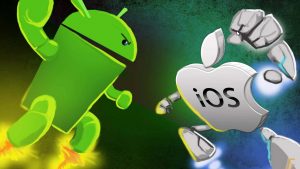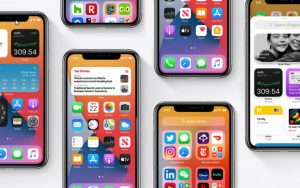Android Vs. iOS: The Future
Android and iOS have been the two dominant operating systems for mobile devices for years. As technology continues to evolve, the battle between Android and iOS continues to heat up. Both systems offer unique features and benefits, but which one is the future? The good thing is, no matter what you’re using, you can still have access to NZ online casino.
Android: The Open Source Giant
One of the biggest advantages of Android is its open-source system. This means that developers have access to the source code and can customize it to create their own versions of the operating system. This has resulted in a wide variety of Android devices available on the market, with varying levels of customization and features.
This diversity can also be a double-edged sword. Fragmentation is a major issue for Android, as different devices may be running different versions of the operating system. Google has been working to address this issue by pushing out regular updates and encouraging manufacturers to update their devices more frequently.

Another strength of Android is its integration with Google’s ecosystem. Google’s suite of apps, including Gmail, Google Maps, and Google Drive, are all easily accessible on Android devices. Google Assistant is also a key feature of Android, allowing users to control their devices and perform various tasks using voice commands.
The latest version, Android 12, offers a more modern design and features like Material You, which allows users to customize the look and feel of their device. Android 12 also includes a number of privacy-focused features, such as the ability to see what data apps are accessing and the option to turn off app permissions when they’re not in use.
iOS: The Closed Ecosystem
While Android is open-source, iOS is a closed ecosystem. This means that Apple controls the software and hardware of its devices, resulting in a more streamlined and consistent user experience across all devices. The closed ecosystem also means that iOS devices are more secure, as Apple has more control over the software and can quickly push out updates to address any security vulnerabilities.
iCloud, Apple Music, and Apple TV are all easily accessible on iOS devices, and Apple’s virtual assistant, Siri, is a key feature of the operating system. Apple’s app store is also known for its strict guidelines, which help ensure that apps are of high quality and free from malware.

In terms of the user interface, iOS has always been known for its simplicity and ease of use. The latest version, iOS 15, continues this trend with features like Focus mode, which allows users to customize notifications based on their current activity and Live Text.
The Future of Android and iOS
So, what does the future hold for Android and iOS? Both operating systems are constantly evolving, and there are a few key trends that we can expect to see in the years to come.
First, both Android and iOS will continue to focus on privacy and security. With data breaches becoming more common, users are becoming more aware of the need to protect their data. Both operating systems will likely continue to introduce new features that give users more control over their data and limit what apps can access.
Second, we can expect to see more integration between mobile devices and other technology, such as smart home devices and wearables. Both Android and iOS have already made strides in this area, with features like Google Assistant and Apple’s HomeKit. As the Internet of Things continues to grow, we can expect to see even more integration between mobile devices and other technology.
The debate between iOS and Android will continue as both operating systems have their own unique advantages and disadvantages. When deciding which operating system to choose, it’s important to consider factors such as user experience, app quality, hardware features, and software updates. Ultimately, the decision comes down to personal preference and what works best for each individual user. As technology continues to advance, we can expect both iOS and Android to evolve and introduce new features that will make the decision even more difficult. Whatever the choice may be, both operating systems have their own merits and will continue to shape the future of mobile technology.
